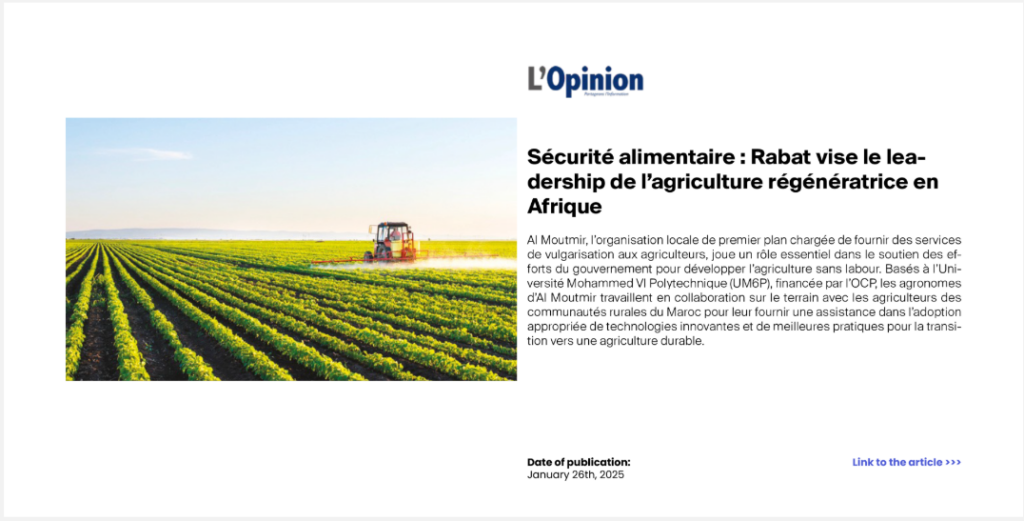“Regenerative agriculture enables farmers to produce more crops with less water while helping to slow climate change. A fast-growing global trend, the regenerative approach can improve water-use efficiency, boost crop yields, and increase soil carbon storage. Comprising a combination of farming, grazing, and agroforestry practices that restore degraded soils by reviving the soil microbiome, regenerative agriculture rebuilds soil organic matter, preserves soil biodiversity, and improves soil moisture retention”, explains the study entitled ‘Morocco emerges as a force for regenerative agriculture in Africa’.
Morocco is an example of agricultural success in Africa, stresses the study, pointing out that the Green Morocco Plan (2008-2020) has increased the value of agricultural exports by 117% to $3.5 billion, creating 342,000 jobs. It also points out that agrifood accounted for 21% of Moroccan exports in 2020.
“With agriculture accounting for 39% of Morocco’s total formal employment, the Green Generation 2020-2030 plan has prioritized the sustainability of the country’s lucrative agricultural production while attempting to elevate 400,000 farm households into the middle class. To this end, Morocco has created regenerative agricultural solutions businesses based on carbon reduction and the monetization of carbon credits, which aim to help small farmers”, writes the study by the Center for African Studies, published on January 20th.
According to this analysis, Morocco’s success in developing regenerative agriculture activities relies on OCP, the world’s largest producer of phosphate products and fourth largest exporter of fertilizers, with revenues of $9 billion in 2023. “As the sustainability of OCP’s operations is a matter of vital national interest, OCP has developed a constellation of subsidiaries and affiliated entities to build capacity to support its sustainability effort as well as to make Morocco a global provider of sustainable development solutions, including regenerative agriculture”, explains CAS. Read the article


Leave a Reply